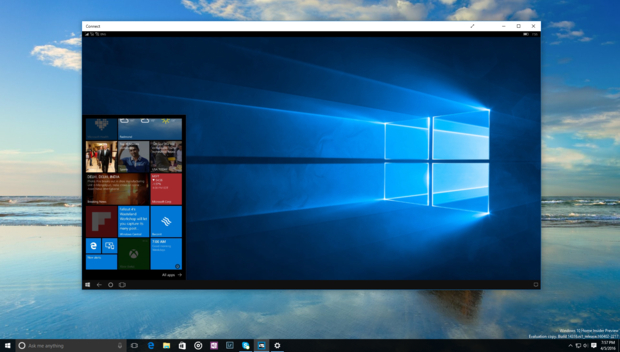Yes, IT managers are indeed eyeing upgrades to Windows 10. But they are not doing so because it will keep their companies more secure or because the Windows 10 technology stack is so compelling.
A newly released survey from VMware, sampling 575 customers and partners considering a Windows 10 move, indicates that while organisations want to make the jump, they are doing it because Windows 7 and Windows 8 are doomed, and Microsoft’s licensing arrangements present a good bargain.
Moving on up
VMware’s survey, assembled from data collected in June, found that moving to Windows 10 ranks as a high priority for nearly two thirds (64%) of those surveyed. Upgrading to Windows 10 trumped maintaining support for existing Windows 7/8 PCs (56%) and refreshing PC hardware (51%).
Aging PC hardware is considered a standard spur to upgrading Windows, although Microsoft and its hardware partners have tried to sweeten the pot with enticing new hardware features on Windows 10 PCs. And while “better support for new hardware” mattered for a good portion (43%) of those polled, that motivation was dwarfed by fear of “the eventual obsolescence of Windows 7 and Windows 8,” which was cited by nearly three quarters (74%).
Another motivator, “better security,” showed up at 39%, although from a certain perspective, that response partly overlaps with the obsolescence issue. After all, an obsolete version of Windows is one that does not receive security updates unless you pay a premium for custom support.
Windows 10’s advanced feature set also figured as a sizable motivator (40%), but a far larger factor was the inclusion of the Windows 10 upgrade in the organisation’s licensing agreement (49%). In short, upgrades are mostly a matter of convenience and urgency, rather than a desire to make the best of the new platform.
Imperfect 10
This relative disinterest in Windows 10’s technology stack also showed in the responses to another question: “How will Windows 10 change Windows management?” The overwhelming answer was that it wouldn’t (58%).
Another curious note was how the biggest perceived blocker to upgrading to Windows 10 was application compatibility, as cited by 61% of the respondents. That issue beat security concerns, Windows 10’s readiness for enterprise use, the cost of the upgrade, hardware compatibility, or the lack of any perceived need for Windows 10.
The OS has had its share of application compatibility ‘gotchas’, but the culprits are likely to be either custom-built enterprise apps that are not guaranteed to work with later versions of Windows or apps that depend on legacy browser technology.
By and large, admins felt Windows 10 either met or exceeded expectations (73%/11% for VMware customers; 62%/24% for partners). And in what has to be the most tongue-in-cheek question seen in a survey like this in years, said folks ranked “working on a Windows 10 project” as a preferred use of time far above “helping a friend move,” “cleaning the garage,” or “getting a root canal” (50%, 15%, 26%, or 5%, respectively).
These days, that is progress.
IDG News Service







Subscribers 0
Fans 0
Followers 0
Followers